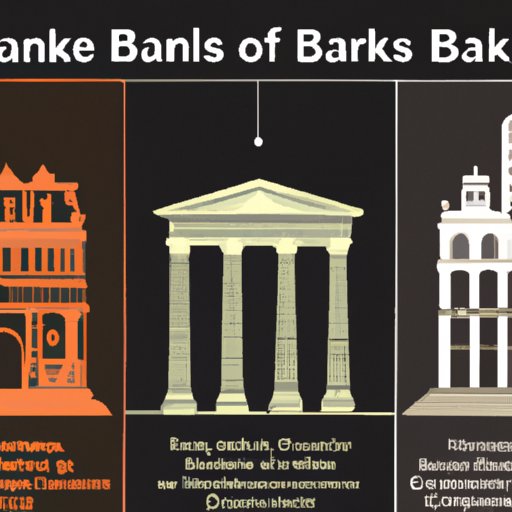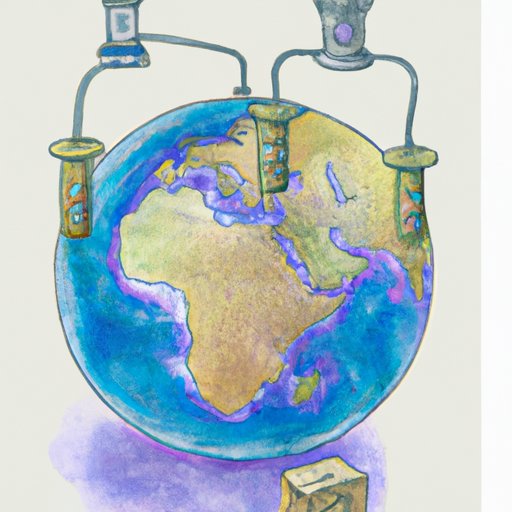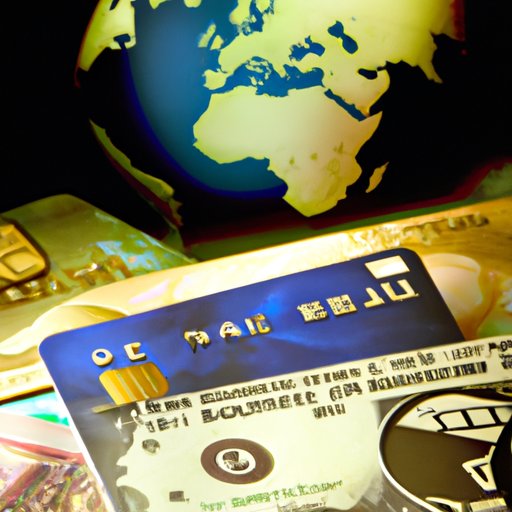Introduction
Banking is an industry that has been around for centuries and has played a significant role in the development of global economies. But when were banks invented? This article will provide a historical overview of banking, beginning with its earliest forms and tracing its evolution through the centuries to the modern banking system we know today.
A Historical Overview of Banking: From Ancient Times to the Present
The earliest form of banking was practiced in ancient Mesopotamia and Egypt as early as 2000 BC. These early bankers acted as intermediaries between merchants and customers, exchanging goods and services for money or credit. The use of public records to document these transactions was one of the earliest forms of bookkeeping.
By the Middle Ages, banking had become more widespread and sophisticated. Italian merchants developed the concept of “double-entry” accounting, which allowed them to keep track of their finances more accurately. The goldsmiths of Europe also began to take on the role of bankers, lending money against gold deposits and issuing paper notes as a form of currency.
The emergence of modern banking began in the 18th century with the introduction of joint-stock banks. These banks were owned by multiple shareholders and operated on a large scale. They provided a variety of financial services such as savings accounts, loans, and investments. This period also saw the creation of central banks, which are responsible for controlling the monetary policy of a country.

The Evolution of Banking: How Banks Have Changed Throughout the Centuries
Over the years, banking has undergone significant changes due to technological advances, new regulations, and changing customer needs. The advent of computers and the internet revolutionized banking, allowing customers to access their accounts online and make payments electronically. Banks have also had to adjust to new regulations such as the Dodd-Frank Act, which was designed to protect consumers from predatory lending practices.
In addition, banks have had to adapt to changing customer needs, offering products and services such as mobile banking, investment advice, and wealth management. As a result, banks have become much more than just places to deposit and withdraw money—they have become integrated into our lives and play an important role in our daily lives.
An Analysis of Banking Practices in Various Cultures and Civilizations
Throughout history, different cultures and civilizations have developed their own unique banking systems. In ancient Greece and Rome, temples served as banks where people could deposit their money and receive interest. In India, the practice of banking dates back to the Vedic period, when bankers lent money against collateral such as gold, silver, and other precious metals.
Medieval Europe saw the emergence of “goldsmith banks”, which were private institutions that issued paper notes as a form of currency. In Asia, banking was largely conducted through merchant networks and guilds. Meanwhile, in the Middle East, Islamic banking emerged during the 8th century, which focused on avoiding usury and investing in ethical ventures.

Exploring the Role of Banks in Societies Around the World
Today, banks play an essential role in many societies around the world. Banks provide a range of financial services, such as saving accounts, loans, investments, and insurance. They also facilitate economic growth by providing capital to businesses, allowing them to expand and create jobs.
Banks also act as a store of value, providing individuals and businesses with a secure place to keep their money. They also serve as a medium of exchange, allowing people to purchase goods and services without having to carry large amounts of cash.

Examining the Impact of Banking on Global Economies
The banking industry plays an important role in global economies, acting as a source of capital and a driver of investment. Banks provide businesses with loans and investments, allowing them to expand and create jobs. They also provide individuals with access to credit, enabling them to purchase homes and cars.
Banks also act as a stabilizing force, helping to prevent economic downturns by providing liquidity to markets. Additionally, banks help to promote economic growth by providing capital to businesses, allowing them to invest and innovate.
Investigating the Inventions and Innovations That Shaped Modern Banking
Throughout history, there have been numerous inventions and innovations that have shaped modern banking. One of the most significant was the introduction of paper money in the 16th century, which allowed banks to issue currency and make loans without having to hold physical assets. Another major innovation was the development of electronic banking in the 1970s, which allowed customers to access their accounts and make payments electronically.
More recently, the invention of credit cards has revolutionized the banking industry. Credit cards allow customers to make purchases without having to carry large amounts of cash, and have made it easier for banks to offer loans and other financial services.
Conclusion
Banking has come a long way since its inception thousands of years ago. Banks have adapted to changing technologies, regulations, and customer needs, and have become integral to our everyday lives. While the exact date of when banks were invented may be unknown, this article has explored the historical development of banking and the inventions and innovations that have shaped modern banking.
(Note: Is this article not meeting your expectations? Do you have knowledge or insights to share? Unlock new opportunities and expand your reach by joining our authors team. Click Registration to join us and share your expertise with our readers.)
